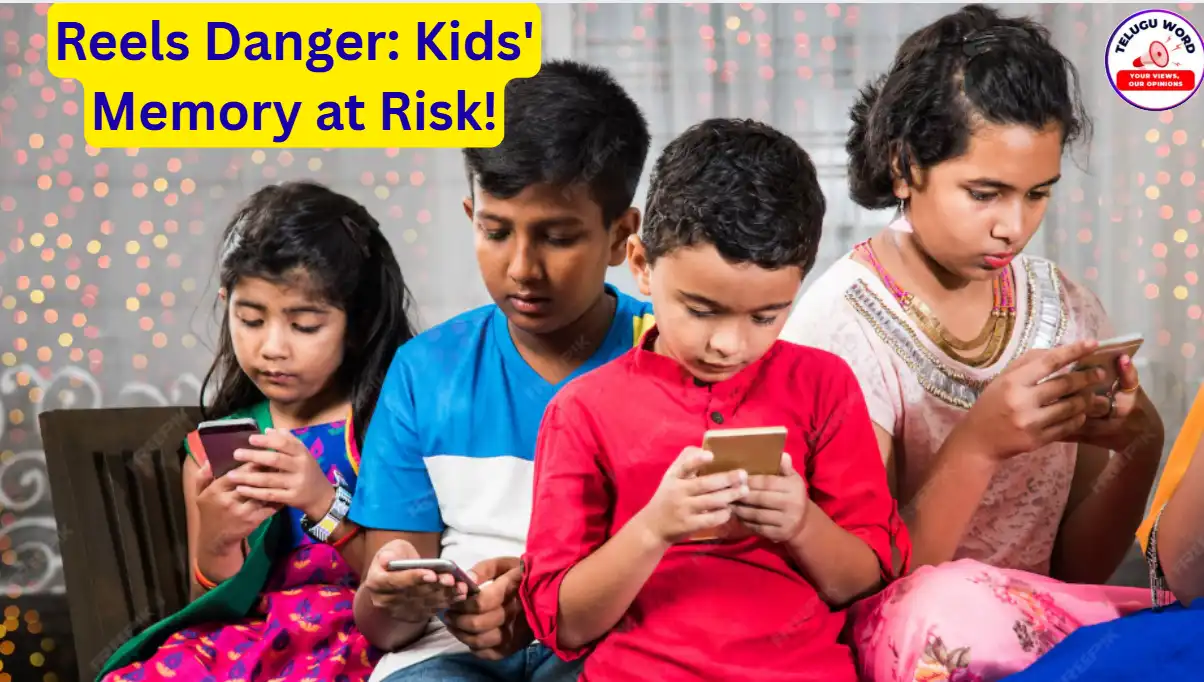Is Social Media Stealing Your Child’s Memory? Shocking Truth Revealed!
Hey parents, have you noticed your kids glued to their phones watching endless reels? Moreover, do you think it’s just harmless fun? However, recent studies show otherwise. In fact, social media effects on children can be quite harmful. For example, excessive screen time leads to memory loss in children. Additionally, short videos like Instagram reels and TikTok clips disrupt attention span. Therefore, it’s crucial to understand this issue. But don’t worry, we can take steps to protect our kids. First, let’s dive into the details.
A new study from the American Medical Association highlights the problem. Researchers looked at kids aged 9 to 13. They found that those spending at least one hour on social media daily scored lower on reading and memory tests. Specifically, they got 1 to 2 points less than peers who avoided social media. So, this isn’t just a small effect. Instead, it impacts cognitive development. Furthermore, as screen time increases, the damage grows. Thus, parents need to act now.
But why does this happen? Well, reels are short and fast-paced. Consequently, they train the brain to switch attention quickly. However, this reduces deep concentration. In other words, kids struggle to focus on one task for long. For instance, reading a book becomes harder. Moreover, constant notifications add to the distraction. Therefore, memory suffers because the brain doesn’t process information deeply. Additionally, during these key years, the brain is developing rapidly. So, bad habits now can have long-lasting effects.
Social Media Addiction: How It Affects Kids’ Attention Span and Memory
Let’s talk about social media addiction in kids. First, it’s more common than you think. In addition, platforms like Instagram and TikTok use algorithms to keep users hooked. As a result, children spend hours scrolling. But this leads to shorter attention spans. For example, studies show that frequent short video viewing reduces focus stamina. Moreover, it impacts academic performance. Therefore, kids may find schoolwork boring compared to exciting reels.
Furthermore, the term “TikTok brain” describes this phenomenon. It means the brain gets used to quick dopamine hits from short content. However, this makes sustained effort feel tough. So, memory formation weakens. In fact, recalling information becomes challenging. Additionally, sleep disturbances from late-night scrolling worsen the issue. Thus, tired kids have even poorer memory.
But there’s more. Research indicates that media multitasking harms executive functions. For instance, checking social media while studying divides attention. Consequently, learning suffers. Moreover, this can lead to anxiety and stress. Therefore, overall cognitive health declines.

Screen Time Effects: The Science Behind Brain Development Impact
Now, let’s explore the science. The brain in children is highly plastic. That means it changes based on experiences. However, too much screen time alters this development. For example, a study found changes in cerebellum volumes from high social media use. Moreover, this affects coordination and cognition.
Additionally, short-form videos overload the senses. As a result, the brain prioritizes quick processing over deep thinking. Therefore, areas for memory and attention may not grow well. In fact, excessive exposure can mimic addiction behaviors. So, kids crave more content, ignoring real-life activities.
But positive content can help if used right. However, the negative outweighs for most. Furthermore, long-term, this may increase risks of mental health issues like depression. Thus, balancing digital habits is key.
Another point: Digital media impacts socioemotional growth too. For instance, less face-to-face interaction hinders empathy. Moreover, comparing oneself online lowers self-esteem. Therefore, memory isn’t the only victim.
Memory Loss in Children: Warning Signs and Long-Term Risks
How do you spot memory loss in children due to social media? First, watch for forgetfulness in daily tasks. For example, forgetting homework or chores. Additionally, poor test scores signal issues. However, it’s not always obvious. So, track screen time.
Moreover, long-term risks include cognitive decline. In fact, studies link heavy use to lower intelligence scores. Therefore, early intervention matters. But with guidance, kids can recover.
Furthermore, mental health problems may arise. For instance, anxiety from FOMO (fear of missing out). Thus, this compounds memory problems.

Tips for Parents: Reducing Social Media Impact on Children’s Cognitive Development
Parents, you can make a difference. First, set screen time limits. For example, no more than 30 minutes of reels daily. Moreover, use apps to monitor usage.
Additionally, encourage offline activities. Like reading books or playing sports. Therefore, this builds focus and memory.
But talk to your kids too. Explain the risks in simple terms. However, don’t ban everything. Instead, find balance.
Furthermore, create tech-free zones. For instance, no phones at dinner. Thus, family time improves.
Also, model good behavior. If you scroll endlessly, kids will copy. So, lead by example.
Moreover, seek professional help if needed. Like counselors for addiction signs.
Read also : Beware Diwali Scams in Festive Sales! (Click here)
Alternatives to Reels: Boosting Kids’ Brain Health Without Screens
What can replace reels? First, outdoor play. It enhances physical and mental health. Moreover, puzzles and games sharpen memory.
Additionally, arts and crafts foster creativity. Therefore, kids develop better cognitively.
But include educational apps sparingly. However, choose ones that promote deep learning.
Furthermore, family storytelling sessions build bonds and memory skills.
Thus, these alternatives protect against social media harms.
In conclusion, social media effects on children are real and concerning. However, with awareness and action, we can safeguard their futures. So, start today for brighter tomorrows.

External Links:








